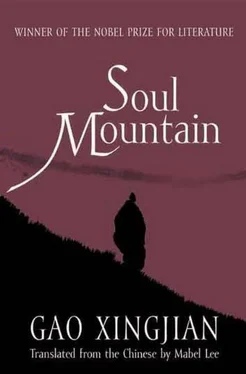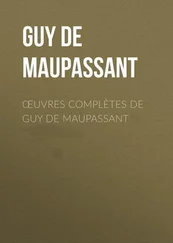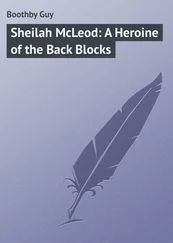“Is that the end?”
“Yes,” he says. “I’ve thought of another conclusion but I’m not too sure about it.”
“Try telling it then.”
“A day later, after having plenty to eat and drink, he woke from a deep sleep and suddenly started to bawl loudly. We couldn’t work out what was wrong and went to ask him. Tears and mucus were streaming down his face and he blubbered for a long time, before blurting: ‘If I’d known there were so many good people in the world I wouldn’t have endured so many years of unjust punishment!’”
I feel like laughing but can’t.
There is a wily glint behind his glasses.
“The conclusion is superfluous,” I say after some thought.
“I deliberately tacked it on,” he admits, taking off his glasses and putting them on the table.
I discover that his far-sighted eyes are not so much wily as miserable and that he is completely different from the perpetually jovial good-natured person he is with his glasses on. I have never seen him like this before.
“Do you want to lie down for a while?” he asks.
“It’s all right, I wouldn’t be able to sleep anyway,” I say.
Outside the window, dawn is breaking. The summer heat has completely subsided and a cool, gentle breeze is coming in.
“We can chat lying down,” he says.
He sets up a bamboo-slat bed for me, takes a canvas deck chair for himself, puts out the light, and lies back in the deck chair.
“I must tell you that at the time I was investigated by this very group which captured the Wild Man. They almost shot me — their bullets whizzed past my head and it was sheer luck that I wasn’t accidentally killed. When things don’t concern oneself, everyone is a good fellow.”
“This is what is special with your story about the Wild Man, people enjoy listening to it. People are cruel and there’s no need for you to try to explain it.”
“You’re talking about fiction, I’m talking about life. It seems that I wouldn’t be able to write fiction.”
“As soon as there’s talk of lice, everyone starts catching them, afraid that they themselves are lice. So what can you do?”
“What if people don’t try to catch them?”
“Then they’ll be afraid of being caught.”
“Didn’t you refuse to catch them?”
“So I was caught.”
“And so the wheels roll on like this.”
“I guess there must have been some progress, otherwise would I have dared to come to look you up for a drink? I would have gone off long ago to become a Wild Man.”
“And I wouldn’t have been able to take you in either. Otherwise, maybe we two good friends would have gone off together to be Wild Men.” He laughs so much that he has sat up. “It’s better without the conclusion,” he says on reflection.
You say he’s lost the key.
She says she understands.
You say he clearly sees the key on the table then when he turns around it is no longer there.
She says, yes, yes.
You say, it is a plain key, a key without a key ring. It used to have a key ring with a curly-haired red plastic Pekinese dog on a chain, but before that it didn’t have a key ring. That was a present from a friend of his, of course a girl friend but not a girlfriend.
She says she understands.
You say, afterwards the dog broke. It was quite funny, it broke at the neck so that there was only the little red head of the dog. He thought it was cruel so he took the key off the key ring.
I understand, she says.
You say it is just a plain key. He seems to think he put it on the lamp stand on the table, together with some drawing pins. The drawing pins are there but the key has vanished. He shifts the books from one end of the table to the other. There are a few letters waiting to be answered but he hasn’t worked out how to answer them. There is also an envelope over the switch. You say he just can’t see the key.
It’s often like that she says.
He has to go out for an appointment but can’t leave the door unlocked. And if he locks the door and doesn’t have the key he won’t be able to get back in. He has to find the key. Books, paper, letters, a bit of money, a few coins are on the table. It is easy to see a key amongst coins.
Yes.
But the key isn’t there. He crawls under the table and sweeps out quite a bit of dusty fluff with a broom, there’s even a bus ticket. If the key had fallen onto the floor it would have made a noise. There are some books on the floor and he goes through them and restacks them. Books and keys are quite different and aren’t easily confused.
Of course not.
The key has vanished just like that.
What about the drawer?
He goes through that. He seems to recall opening the drawer. He used to have a habit of putting the key in the right-hand corner of the drawer but stopped doing that a long time ago. The drawer is full of letters, manuscripts, bicycle licence plates, medical cards, gas supply cards, and all sorts of bills. There are also some commemorative badges, a gold pen box, a Mongolian knife and a small cloisonné sword. None of these are worth anything but it’s a pity to throw them out because they hold a few memories.
Everyone has memories they treasure.
Not all memories are worth treasuring.
Yes.
Losing them is a form of liberation. There are also buttons which have come off and aren’t likely ever to be used again. The shirt this ink-blue perspex button came off was used for a mop a long time ago but the button is still there.
Yes, and then?
Afterwards he pulls out the drawer and takes everything out.
So it can’t be there.
He knows quite well it can’t be there but he still goes through it.
It’s like that. Does he go through his pockets?
He goes through all of them. He goes through his front and back trouser pockets at least five or six times, and also through the pocket of the shirt on the bed. He goes through the pockets of every item of clothing he has out, the only things he doesn’t touch are the things in the suitcase.
Then–
Then he moves everything from the table onto the floor, re-stacks the magazines on the bedhead, opens the bookcase, and even shakes the bedding, the mattress, and looks under the bed, oh, and in his shoes! Once a five cent coin dropped into a shoe. He put on the shoes, went out, and only noticed when it started hurting his foot.
Doesn’t he have his shoes on?
He had them on to start with but after shifting everything from the table to the floor, there is nowhere to put his feet. He can’t tread on the books with his shoes so he takes them off and knls on the books to search through them.
Poor thing.
This plain key without a key ring is buried somewhere in the room. He can’t go out and, looking at the abyssmal mess in the room, is at his wit’s end. Ten minutes earlier his life was orderly. This is not to say that the room was particularly clean and neat, the room has never been all that clean and neat but it always looked good. His life had its own order and he knew where everything was, he lived quite comfortably in this room. In any case he was used to it and because he was used to it, it was comfortable.
Right.
It was not all right, everything is in the wrong place, everything is wrong!
Don’t panic, now think carefully.
He says he is sick of it all. There is nowhere to sleep, nowhere to sit, nowhere even to stand. His life has turned into a heap of rubbish. He can only squat there on the piles of books. He can’t help being angry but can only be angry with himself. He can’t blame anyone, it is he who has lost his key and got himself into this predicament. It’s impossible for him to escape this mess, his messed up life, he can’t go out, but he has to go out!
Читать дальше
Конец ознакомительного отрывка
Купить книгу












